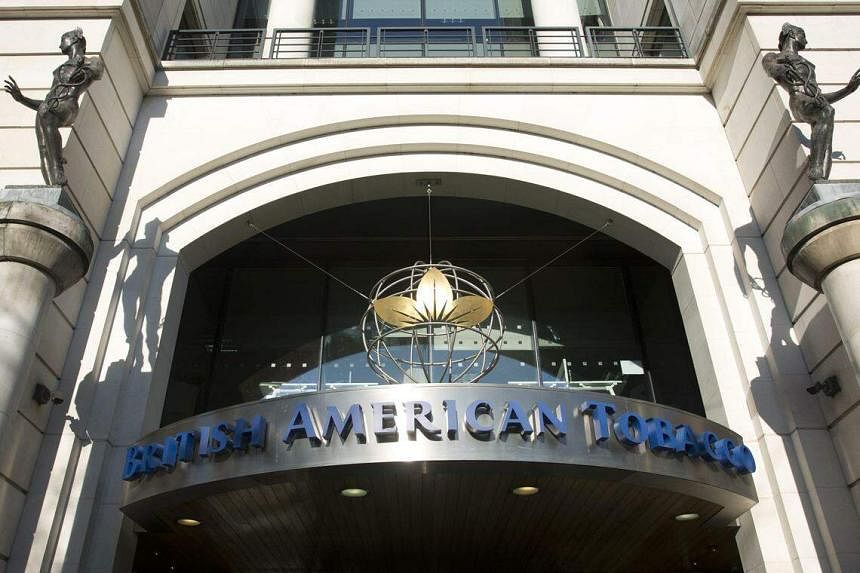SINGAPORE – The British American Tobacco (BAT) unit in Singapore did not break local laws despite having a record multimillion-dollar penalty in the United States slapped on it for flouting North Korean sanctions.
In response to queries, the police on Friday said the authorities in Singapore became aware in 2018 that BAT Marketing Singapore was involved in selling cigarette components to the Democratic People’s Republic of Korea (DPRK), but stopped sales since June 2017 – five months before Singapore suspended all trade with the country.
The police statement said: “Having reviewed the facts, we assessed that there was no breach of Singapore’s United Nations (Sanctions – DPRK) Regulations 2010, which implements the UN’s sanctions against the DPRK.
“The trade of cigarette components with the DPRK was not prohibited under our laws at that time.”
The statement added that the sanctions were implemented on Nov 8, 2017.
Trade sanctions against North Korea make it a crime for anyone in Singapore, as well as Singapore citizens based overseas, to supply, sell or transfer designated export items to anyone in North Korea, whether directly or indirectly.
It is also against the rules to trade in goods with anyone in North Korea.
Those found guilty of doing so can be fined up to $100,000 or three times the value of the goods that were dealt with, whichever is greater. They can also be jailed for up to two years or both.
The United States Justice Department on April 25 said BAT and BAT Marketing Singapore agreed to pay more than US$635 million (S$842 million) in penalties for selling tobacco products to North Korea for years despite US sanctions.
Both BAT and its Singapore subsidiary were charged with conspiracy to commit bank fraud and conspiracy to violate the International Emergency Economic Powers Act.
The BAT Singapore unit pleaded guilty.
BAT, however, struck a deferred prosecution deal with the US Justice Department that would get its case dismissed in three years if the cigarette maker improves its compliance programme.
The entire scheme had taken place some time between August 2007 and June 2017, according to court documents seen by The Straits Times.
BAT is the world’s second-biggest tobacco firm, whose brands include Dunhill and Lucky Strike cigarettes. It was found to have operated a network of front and shell companies to supply North Korean cigarette makers during this time.
These include another Singapore-registered firm that bought over BAT’s joint venture in North Korea in 2007.
Although its name was not disclosed, checks by ST found that the firm involved was the SUTL Group – a conglomerate that owns marinas globally under the One°15 Marina brand and also distributes a raft of consumer goods.
An e-mail sent by an SUTL Group executive and cited in US court documents said the firm would act as “a vehicle for BAT to bring out the joint venture money and distribute it to BAT”.
Although the joint venture was officially a subsidiary of SUTL Group on paper, BAT Marketing Singapore “maintained significant influence over (it) and used SUTL Group as a shell company”.
As a shell company, SUTL Group would send over invoices from BAT Marketing Singapore to an employee of the North Korean Tobacco Company.
After payment was made, SUTL Group would take a small percentage of commission before transferring the rest of the money to BAT Marketing Singapore.
ST has contacted SUTL Group for comment.
BAT Marketing Singapore also sold tobacco products to the North Korean embassy in Singapore until 2017.
Checks with the Accounting and Corporate Regulatory Authority show that KPMG has been BAT Marketing Singapore’s appointed auditor since Aug 27, 2015.
When asked if there had been any discrepancies detected during the firm’s annual audit, KPMG declined comment.
Meanwhile, a BAT spokesman said the firm would not elaborate beyond a press release put up on its website on April 25.
Other than expressing remorse for the misconduct, the release said BAT had reached an agreement with the US authorities.
It did not provide more details because the terms of the agreement meant BAT could not comment “on the documentation published by the investigating authorities, the contents therein, or on related factual matters”.
- Additional reporting by Amanda Lee


